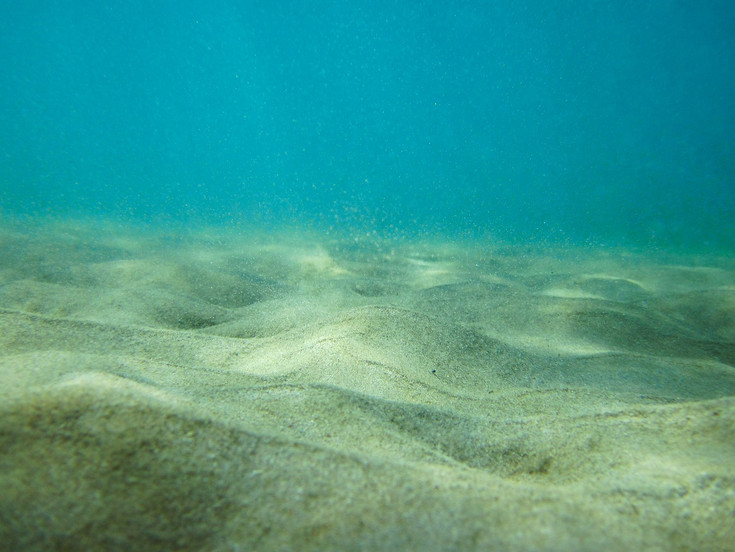06.07.2023 - How algae and marine bacteria contribute to CO2 storage in the oceans

Fabian Pfrengle from the Institute of Organic Chemistry at BOKU received an ERC Consolidator Grant for his project "Automated Synthesis of Algal Polysaccharides" on basic research on the marine carbon cycle.
Along with forests, oceans are among the largest CO2 reservoirs on earth. Like trees, marine algae also convert gigatonnes of carbon dioxide into carbohydrates every year by means of photosynthesis. In the form of algal polysaccharides, among other things, these structurally complex biomolecules determine to a large extent how much CO2 is actually stored in the oceans.
Specialised marine bacteria can break down the algal polysaccharides through the action of carbohydrate-active enzymes (CAZymes) and release the carbon dioxide back into the atmosphere. However, some of the polysaccharides (between 5 and 10 per cent) are not recycled quickly, but sink into the deep sea and sediments, where they can store CO2 for millennia.
To better understand these processes, great efforts are needed to further research the marine carbon cycle. The entire machinery of enzymes responsible for the degradation of polysaccharides by marine bacteria is still largely unexplored due to the size and heterogeneity of algal polysaccharides. This is now to change: Prof. Fabian Pfrengle, head of the Institute of Organic Chemistry at BOKU has received an ERC Consolidator Grant of two million euros from the EU for his project "Automated Synthesis of Algal Polysaccharides (ASAP)".
"In the ERC project, we want to chemically reconstruct the algal polysaccharides in order to obtain more precise information about which structures can be recognised by which marine bacteria and how and in what way they can be degraded," Pfrengle explains the objectives of ASAP.
Because "pure Pure and defined oligosaccharides (a compound of 3 to 10 monosaccharides), which are needed for a systematic screening of marine CAZymes, are currently not widely available." Since conventional chemical synthesis is time-consuming and often not general enough, ASAP aims to obtain collections of oligosaccharides, so-called "sugar libraries", representing different classes of algal polysaccharides by using automated glycan synthesis ssembly (AGA) technology. Automated glycan synthesis assembly rapidly and reliably produces biologically relevant carbohydrates that are used in particular for biological and medical research.
Over the next five years, Fabian Pfrengle and his team will now conduct basic research to gain insight into the collective enzyme activities of a bacterial community in seawater and sediment samples:
- the collective enzyme activities of a bacterial community in seawater and sediment samples.
- the abilities of individual bacterial strains to degrade certain polysaccharides.
- the substrate specificity of purified CAZymes.
"With the knowledge we hope to generate during the course of the project, algae could be more specifically selected and bred for efficient CO2 storage or for applications in biotechnology in the future," says Pfrengle.
Scientific contact:
Univ.Prof. Dipl.-Chem. Dr. Fabian Pfrengle
Institute for Organic Chemistry
University of Natural Resources and Life Sciences Vienna
E-mail: fabian.pfrengle(at)boku.ac.at
Tel.: 01 47654 - 77301
